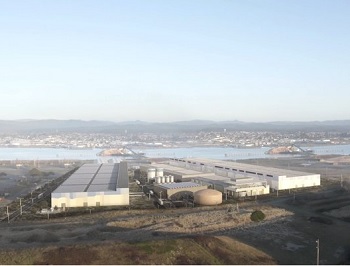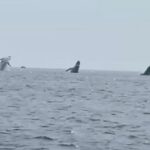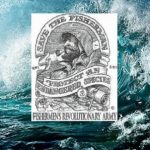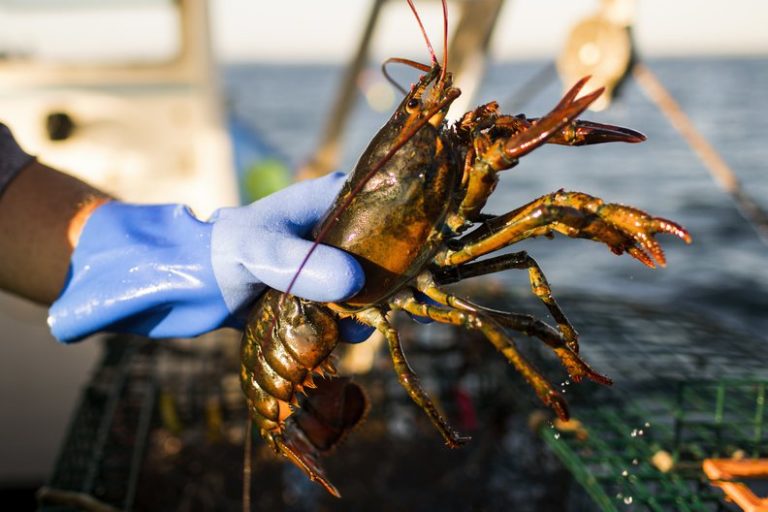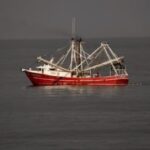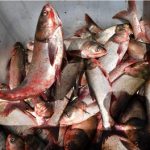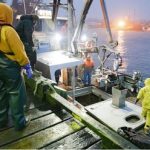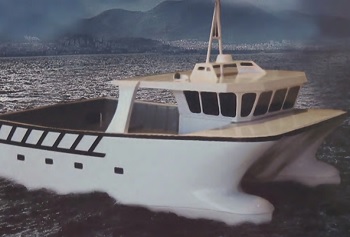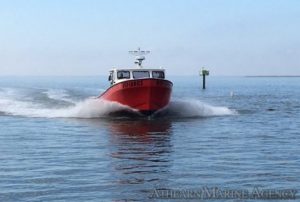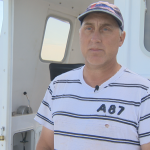Tag Archives: Fish Farm
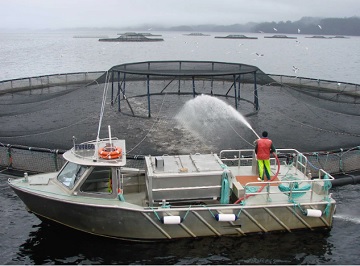
Tassal recommends shareholders accept $1.1 billion takeover bid from Canadian seafood giant Cooke
The last remaining Australian-owned major salmon producer looks set to go to foreign hands, after Canadian aquaculture company Cooke upped its offer for Tassal. Tassal told the Australian Securities Exchange that it has recommended shareholders accept Cooke’s latest $5.23 per share bid, which values the company at $1.1 billion. Cooke has attempted to purchase Tassal for months, lodging three unsuccessful takeover bids, with the latest in June valued at $4.85 per share. The potential acquisition of Tassal follows foreign takeovers of Australia’s other two major salmon companies. New Zealand seafood giant Sealord purchased Petuna in 2020, while Brazilian-owned JBS completed its takeover of Huon Aquaculture last year. >click to read< 10:09
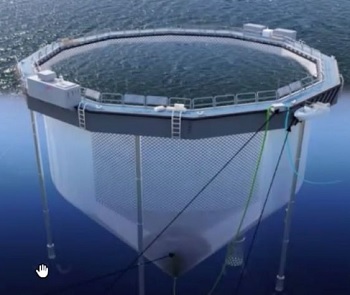
Journalistic Failure: Calling them out for missing the real story
Your piece on American Aquafarms’ new propaganda videos reads like a company press release instead of a news story in a serious newspaper. For some reason the EA abandoned all journalistic principles and allowed American Aquafarms (which is neither American nor an operator of a single fish farm) to hype its massive, polluting, job-destroying fish farm scheme without any standard journalistic examination. There was no context, no questions, no investigation and no acknowledgement of the overwhelming grassroots opposition to the project. The “story” is such a lame love letter that it would be funny if the situation weren’t so tragic. By Jed West, Prospect Harbor >click to read< 10:31
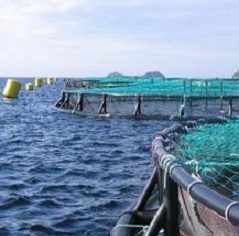
Nova Scotia: Cermaq abandons controversial fish farm expansion, could not find 15-20 sites needed
On Thursday, the Mitsubishi Corp. subsidiary said it could not find suitable locations for the 15 to 20 farm sites it needed to justify a move into the province. “Unfortunately, we were unable to locate enough sites at this time, and have made the decision to allow all of our options to lease to expire,” David Kiemele, managing director for Cermaq Canada,,, It also said it would not proceed without community support.The company said in the coming weeks it will wrap up the feasibility work and close its Guysborough office.,, Meanwhile, Cermaq competitor Cooke Aquaculture said Thursday it is proceeding with its plans to expand in Nova Scotia. >click to read< 13:08
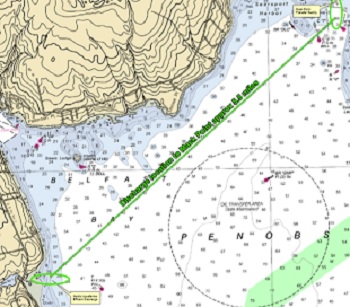
Comment Period Extended for Nordic Aquafarms
DMR is accepting comments solely about the potential impacts of the proposed dredging operation on fishing in the area to be dredged and on impacts to the fishing industry of the proposed route to transport dredge spoils to Mack Point in Searsport where material will be offloaded and transported to an approved upland disposal site. This facility will require the construction of intake and discharge pipes which will be buried across intertidal and shallow sub-tidal lands to a maximum depth of 10 feet with a minimum of 5 feet of cover. >click to read< 09:52

Fish farms not worth damage they’ll do
I have lived in Tiverton my whole life. I am a lobster fisher. I am very concerned about the effect that fish pens proposed by Cermaq will have on St. Mary’s Bay. I have environmental, economic and community concerns. I have been told approximately 25 acres of prime lobster bottom is being taken away from us by each of these salmon pens. We don’t have a groundfish fishery anymore. Lobsters are what sustain our way of life. These pens are proposed to go where I have always caught the majority of my lobster, and that could displace me from my job, by Sheldon Dixon, >click to read< 11:10
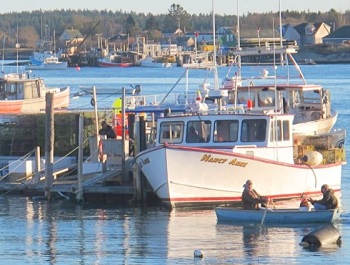
$110M fish farm would mean changes for Jonesport
Nobody expects a major employer moving into town to solve all the challenges the towns face, even if the yellowtail aquaculture company Kingfish Zeeland does what CEO Ohad Maiman says it plans to do — hire 70 people up front, establish a job-training program with the local high school and Maine colleges, (sounds like the wind farmer model!) and possibly expand production later. But local officials and residents say the development could help boost and diversify the area’s economic prospects without sacrificing the rural, hard-working character of what has been a fishing town for more than 200 years. >click to read< 10:53
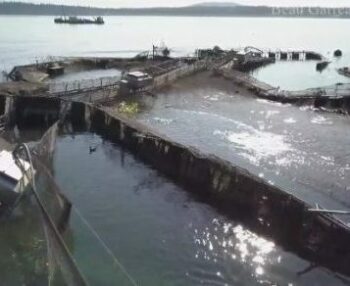
Cooke Aquaculture agrees to pay $2.75M to settle lawsuit over salmon net-pen collapse
Cooke Aquaculture has reached a settlement to pay $2.75 million in legal fees and to fund Puget Sound restoration projects, putting an end to a Clean Water Act lawsuit that followed the 2017 collapse of one of the fish-farming company’s net-pen structures.,,, The legal settlement, which awaits federal officials’ review and a judge’s signature, bookends a contentious and litigious chapter in the fight over fish farming in Washington waters that resulted in the termination of some of Cooke’s leases, a $332,000 fine to Cooke from state regulators and a ban on farming nonnative fish, >click to read< 12:09
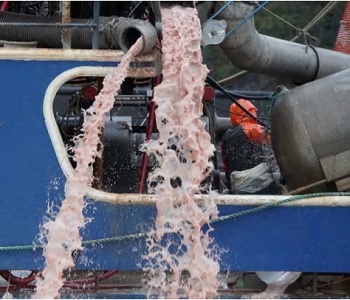
CEO of company that recorded 2.6 million dead salmon apologizes to N.L. government
The CEO of Mowi, (Alf-Helge Aarskog), has apologized to the provincial fisheries minister and promised to do better, after 2.6 million salmon were killed on Newfoundland’s south coast, followed by criticism that the company should have been more transparent in disclosing information about the incident. “We did not live up to both your, and our own expectations,” he wrote in a letter to Premier Dwight Ball and Fisheries Minister Gerry Byrne. >click to read< 19:17

Canadian firm’s steelhead trout farm plan under the microscope after salmon escapes
Last month, a net pen used for fish farming and operated by Cooke Aquaculture Pacific began to dip below the surface off Bainbridge Island. A hole in a pontoon left the structure’s southeast corner partially submerged. Repairs were eventually made. But now as the New Brunswick-based Cooke seeks to farm steelhead trout — instead of the nonnative Atlantic salmon that state law will soon ban — the incident has caught the attention of state regulators. >click to read< 12:58

Diver airlifted from Northern Harvest Sea Farms site in Fortune Bay, stop-work order issued
Northern Harvest Sea Farms hired several dive teams to empty its open-net pens, following a massive fish die-off that left thousands of pounds of salmon to rot. In a statement Monday morning, a spokesman for Northern Harvest Sea Farms said the divers are employed by third-party companies, and one of those companies reported an incident requiring occupational health and safety to get involved. The suspension of dive operations is a serious blow to ongoing clean-up efforts, but the company insists its “clean-up activity can continue despite dive activity being temporarily stopped.” >click to read< 08:21
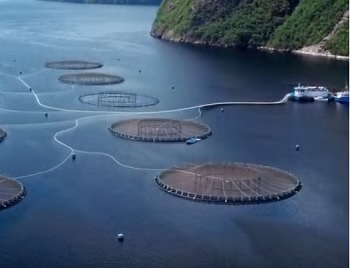
Washington tribe partners with Cooke to farm Northwest native species
The Jamestown S’Klallam Tribe is pleased to announce a joint venture with Cooke Aquaculture Pacific. The joint venture will initially work to rear sablefish (black cod) and sterile triploid, all-female rainbow trout. The venture will require reinstatement of the farm lease at Port Angeles, in exchange for significant investment by the venture in new infrastructure and local jobs in the area. The two partners will work together to rear these Northwest native species in Port Angeles Harbor. >click to read< 13:23

Pink liquid flows in Fortune Bay, Area fishermen want more information on whether cleanup will affect them
A cleanup operation is underway in Fortune Bay, where Northern Harvest Sea Farms is emptying out its salmon pens following a massive fish die-off. The company, owned by aquaculture giant Mowi, has been cleaning out its salmon farming equipment since September.,, The company is using divers and has hired large purse seiner vessels from Newfoundland and Labrador and New Brunswick to clean out their pens. On Wednesday morning, gallons of pink liquid flowed from the side of two large vessels at one cleanup site in Fortune Bay. >click to read< 18:58
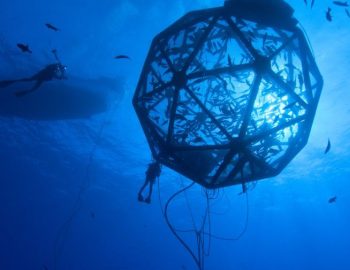
EPA considering first fish farm in Gulf of Mexico
The farm, a pilot project, would not only be a first for the gulf, but would also be the first in the federal waters of the continental United States. If it works, then look for others to follow, both here and elsewhere, said Kampachi co-founder Neil Anthony Sims. “We think the gulf coast of Florida around Tampa offers the most advantageous location, given the criteria we’re looking at,” Sims said. Other companies are eyeing potential fish farm locations off of California and Long Island, he said. >click to read< 14:24

Aquaculture conference overshadowed by fish die-off, bickering
An aquaculture conference in St. John’s is being overshadowed by a massive fish die-off on Newfoundland’s south coast, a war of words between industry leaders and the fisheries union,,, Dozens of delegates have gathered at the Delta Hotel this week for the annual Newfoundland Aquaculture Industry Association’s Cold Harvest 2019 conference. But a company’s attempts to clean up thousands of dead fish in the Coast of Bays-Fortune Bay area has reignited debate over the industry, which has been scrutinized for repeated infectious outbreaks, escapes, an outpouring of government money, and what some say is a threat to wild fish. >click to read< 15:50
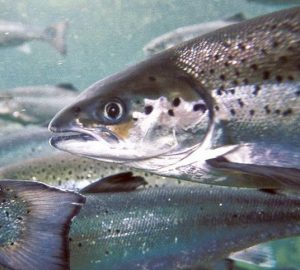
Leo White: Comparing open-net to recirculatory fish farming
In his letter, Cyr Couturier claims that open-net pen (ONP) aquaculture is alive and well in Newfoundland and Labrador and everywhere else. Nothing could be further from the truth.,,, In Norway, the birthplace of ONP technology, it is not possible to even get a licence to establish a new salmon aquaculture farm.,,,licences for Recirculatory Aquaculture Systems (RAS), which are land-based, are free. Clearly in Norway RAS is seen as the future for farming Atlantic salmon. Meanwhile in N.L., access fees are negligible and salmon farmers pay nothing for the incredible damage and pollution they create. >click to read< 11:36
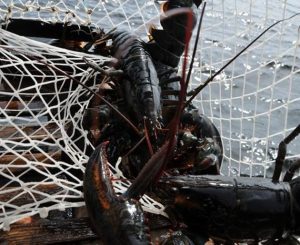
Science journal article disputes claims that aquaculture is a sustainable industry
Inka Milewski, a research associate in the Department of Biology at Dalhousie University, said Monday her conclusions are partly based on a series of long-term studies of a fish farm in Port Mouton Bay, N.S. She says evidence of an impact on lobster populations and eelgrass in the bay around those pens run counter to a “narrative” found on various federal Fisheries websites that Ottawa manages the industry in “a sustainable way.” Her report notes that Ottawa had collected reports of 14.4 metric tonnes of antibiotics and 439 metric tonnes of hydrogen peroxide pesticides being placed in the waters since federal aquaculture regulations came into force four years ago. >click to read<17:51
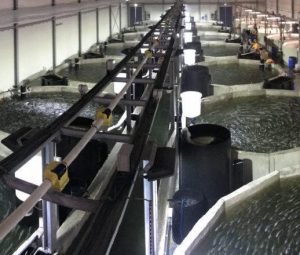
Belfast Conflict Waves A ‘Red Flag’ For Dutch Firm Looking To Add A Third Fish Farm In Maine
The Dutch entrepreneur who would like to build a land-based yellowtail fish farm somewhere in Maine said that the relentless opposition that some have shown to Nordic Aquafarms’ proposed Belfast salmon farm has made him proceed here with caution. Ohad Maiman of Kingfish Zeeland said in a phone interview last week that company officials believe they have found two viable sites on the Maine coast after reviewing 22. But he does not want to identify those communities yet in hopes of avoiding the same kind of response that Nordic, a Norwegian-based company that is working to build a $500 million facility, has grappled with since announcing its plans in January 2018. >click to read<11:13
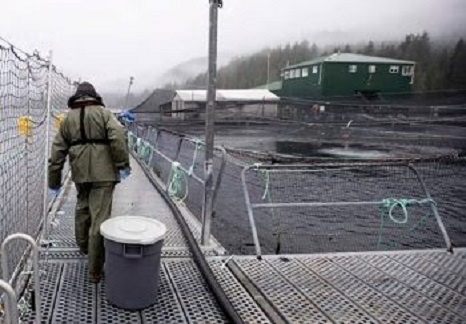
Conservationists raise alarm over wild fish killed inside B.C. salmon farms
A conservation charity said it’s concerned by what it calls a “growing trend” of wild fish killed by the salmon farming industry on British Columbia’s coast. Stan Proboszcz, Watershed Watch Salmon Society, said nine times as many wild fish were reported inside open-net pen farms in 2017 compared with 2011.,, The society estimates that about 13.2 million wild fish may be held in B.C.’s 65 salmon farms at any given time, and an additional 653 tonnes of wild fish may be hanging around outside the farms because they’re attracted by things like food and lights.,,, “The farms are known to be amplifiers of pathogens, parasites and viruses. Are these things being spread to wild fish?” >click to read<20:47
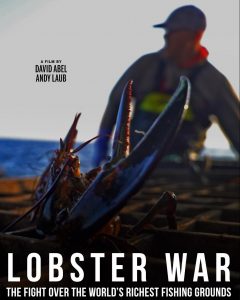
Letter: More awareness needed of fish farms
To the editor: I went to the screening of “Lobster Wars” that occurred at the Cape Ann Museum on June 4. In the panel discussion after the movie, Larry Stepenuck was the only one who brought up the devastating effects and disturbances on the lobstermen and fishermen by the fish farms. These polluting enterprises and associated infrastructure take out huge chunks of the ocean that the fishermen and lobsermen could otherwise fish in (both vertically and horizontally). What’s left is getting slimmer all the time. Here, NOAA wants the lobstermen to develop ropeless lobster traps in order to protect the right whales. Meanwhile, NOAA and the Army Corps of Engineers turned around last year and awarded one of the Saltonstall-Kennedy grants to the development of a fish farm in the Critical Zone. A must read by Sue Waller, Rockport. >click to read<14:13
60-Day Notice of Intent to Sue NOAA under the Endangered Species Act Regarding Sea Grant’s Funding of Offshore Aquaculture Projects – >click to read<
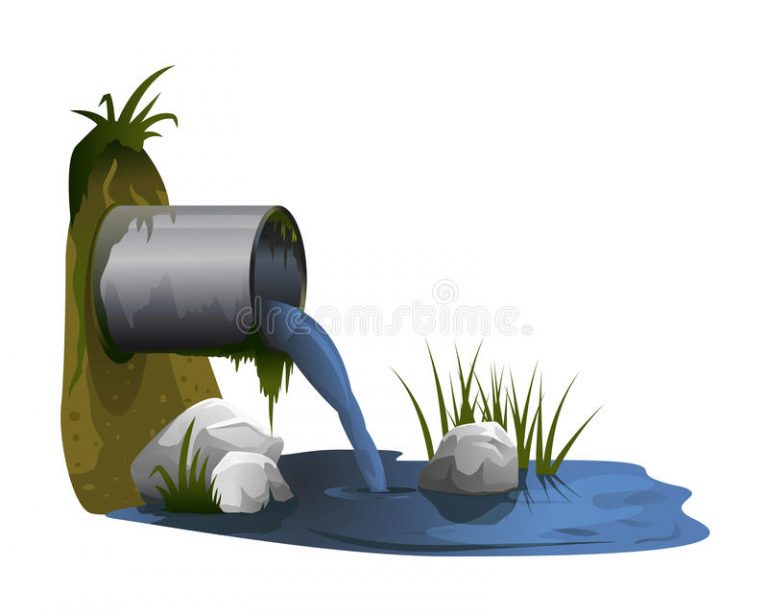
Land Based In Name Only? Belfast lobstermen fear Nordic Aquafarms’ discharge pipes will harm fishery
Some Belfast lobster fishermen told the local Harbor Advisory Committee that they were concerned that dredging for installation of Nordic Aquafarms’ discharge and intake pipes along submerged lands could release mercury in the ocean sediment and pose a hazard to navigation. “The fishermen have concerns,” advisory committee member Dan Miller told the council. The committee doesn’t have any purview over Nordic Aquafarms’ proposal, he noted. “Our place is to ask you to make sure those concerns are in some way addressed by the appropriate agency.” >click to read<15:10
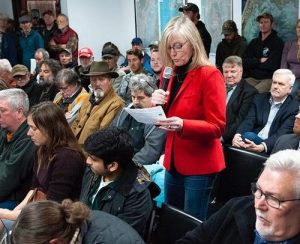
Harbor District Approves Lease for Massive Fish Farm
The Humboldt Bay Harbor, Recreation and Conservation District today approved a 30-year lease with Norwegian company Nordic Aquafarms to build a massive fish farm at the former pulp mill after hearing concerns the deal was ushered through without public review. The plan is to build a land-based aquaculture facility that would eventually produce some 25,000 tons of fish a year – likely salmon or steelhead – to serve as the West Coast hub for Nordic Aquafarms, which is currently in the process of developing an East Coast equivalent in Belfast, Maine.,,, Included in the terms is the right for the company to discharge 6 million gallons of wastewater per day using the site’s ocean outfall pipe, which extends 1.5 miles offshore.>click to read<11:51
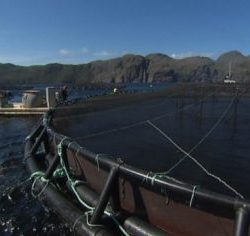
Alaska wary of federal push for marine aquaculture. Everyone should be.
During a recent stop in Juneau, NOAA Fisheries chief Chris Oliver said that wild seafood harvests alone can’t keep up with rising global demand. But there’s another way. “Aquaculture is going to be where the major increases in seafood production occur whether it happens in foreign countries or in United States waters,” Oliver told a room of fishermen, seafood marketing executives and marine scientists.,,, There’s a bill pending in the U.S. Senate that could decide how federal aquaculture is regulated. It’s being backed by an industry group called Stronger America Through Seafood. >click to read<20:58
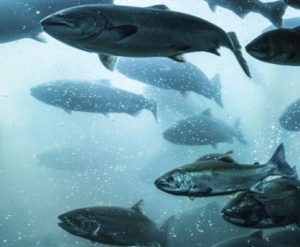
Chile accuses Marine Harvest of damaging environment after 600,000 salmon injected with antibiotics escape
Chile’s environment ministry on Monday (Aug 6) accused the local unit of Norway’s Marine Harvest of damaging the environment after hundreds of thousands of salmon escaped from one of the company’s fisheries last month. The ministry said in a statement that it had asked the State Defense Council, which represents the government in legal matters, to investigate the incident and initiate legal action against Marine Harvest with the aim of repairing the environmental damage. Some of the 600,000 fish that swam into the wild last month after a storm damaged enclosures near the southern city of Calbuco had been injected with a course of antibiotics that was incomplete at the time of their escape, making them unfit for human consumption. >click to read<08:49
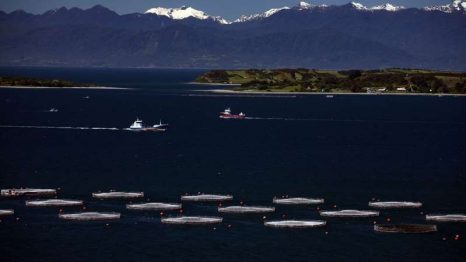
Great Salmon Escape Threatens to Taint Chile’s Fish Farms
About 900,000 salmon escaped from a Marine Harvest ASA farm during a storm on July 5, according to the Bergen, Norway-based company. The fish are not fit for consumption, Marine Harvest said in a press release. The company has recovered about 250,000 salmon and taken them to a nearby site, it said in a separate statement on July 9. About 680,000 fish are still missing and it is collaborating with the local Fisherman’s Federation to recover the remainder, Marine Harvest said. Chile’s salmon industry was already under attack for the use of hundreds of tons of antibiotics every year and allegations that the dumping of dead fish in the past have fueled algae blooms that damage the local fishing industry. >click to read<10:51
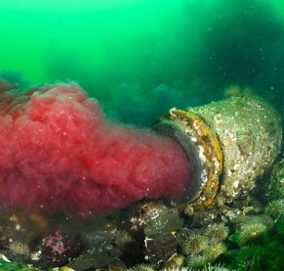
Fish Farm: Audit finds 70 percent of B.C. fish-processing plants do not comply with environmental regulations
An audit of British Columbia fish-processing plants sparked by gory video of a pipe spewing bloody water into the Salish Sea has found that more than 70 percent of plants audited are out of compliance with environmental regulations, and some operate under rules decades behind modern standards. Stronger measures are needed for the fish-processing industry, to ensure protection of the marine environment, including wild salmon, according to the audit of 30 fish-processing plants released Wednesday by the B.C. Ministry of Environment and Climate Change Strategy in response to controversy that erupted over the plume. >click to read<13:00
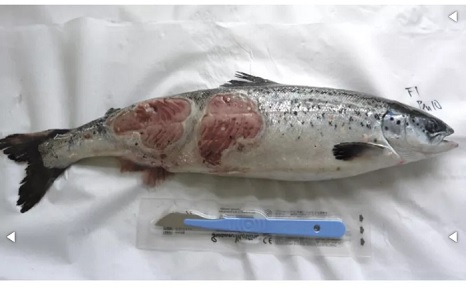
Horror photos of farmed salmon spark legal threat
The diseases, damage and infestations suffered by hundreds of thousands of caged salmon in Scotland have been exposed by more than 300 graphic photos released by the Scottish Government. Pictures taken since 2015 by fish health inspectors investigating mass deaths at salmon farms along the west coast and on islands reveal eight diseases, bloody lesions, eye damage, deformed organs, plagues of flesh-eating sea lice and much else.,,, The investigations were into outbreaks of disease and other issues at 27 fish farms run by six companies. The majority – 15 – were at farms operated by Marine Harvest, along with four run by The Scottish Salmon Company, three by Scottish Sea Farms, three by Cooke Aquaculture, two by Greig Seafood, two by Loch Duart and one not known. >click to read<17:42
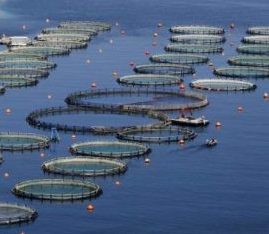
Hundred organisations opposes industrial ocean fish farming
More than a hundred organisations have formally announced their united opposition to industrial ocean fish farming in U.S. waters. According to Friends of the Earth, the move comes as some members of Congress are attempting to force through legislation to develop offshore fish farming nationwide. In a letter to members of Congress, the broad coalition representing a wide range of interests, including commercial and recreational fishing, indigenous populations, consumer advocacy, food, farming and conservation, called on legislators to protect oceans from development of marine finfish aquaculture off U.S. shores. >click to read<08:59
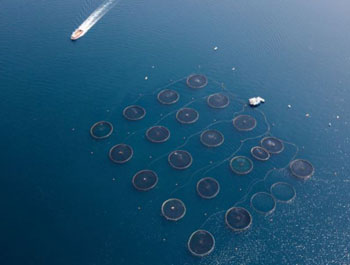
NOAA, NGOs debate effects of ocean farms on wildlife, Litigation may be deterring investors
Federal waters in the Gulf of Mexico have been open to fish farming for two years, but no farms yet exist. In January 2016, the National Oceanic and Atmospheric Administration’s National Marine Fisheries Service issued a rule that would let companies apply for 10-year permits to farm fish in federal waters of the Gulf, with five-year renewals thereafter.,, Paul W. Zajicek, executive director of the National Aquaculture Association, suspects companies interested in starting offshore farms are waiting for results of a federal lawsuit against the fisheries service.,, Those behind the lawsuit say NOAA’s fisheries service is trying to regulate aquaculture as fishing but lacks authority to expand into aquaculture. >click to read<21:43






